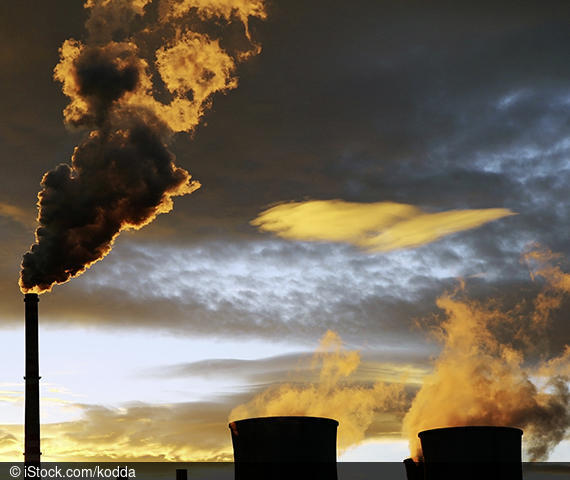Approved EU Emission Trading Reforms Drive up CO2 Prices
ResearchThe prices for European emission allowances (EUAs) have tripled over the course of 2018 and have reached their highest level in ten years, with prices well above 20 euros per tonne of CO2. A central reason for this rapid surge in EUA prices are the planned reforms to the EU emissions trading system adopted at the beginning of 2018, imposing a stronger reduction of newly issued emission certificates per year from 2020 onwards and allowing for the deletion of surplus certificates from the so-called market stability reserve. This is the result of the latest ZEW Energy Market Barometer, a survey carried out by the ZEW – Leibniz Centre for European Economic Research in Mannheim among energy market experts.
While prices for emission certificates had been fairly stable and remained below ten euros per tonne of CO2 for many years, EU emissions trading has been experiencing enormous price increases since the beginning of 2018. Although the most recent reforms to the emissions trading system will not come into force until after 2020, the majority of experts surveyed by ZEW consider these reforms to already act as key drivers of the price increases.
34 per cent of the respondents consider the plans to delete certificates in the market stability reserve to be the most important reason for the price increases, whereas 21 per cent regard the planned tightening of the ETS cap, which will reduce the number of certificates issued per years, to be the fundamental driver behind the price surge. This illustrates the extent to which expectations of future scarcity determine the price of EUAs. This is also in line with the experts’ assessments of the further development of CO2 prices, according to which 54 per cent of the respondents expect prices for EUAs to remain on the currently high level over the coming twelve months. This number corresponds quite precisely to the majority of experts identifying the adopted reforms as the most important price drivers.
When asked about the reasons for the currently high CO2 prices, 16 per cent of the respondents stated that they expect the EU ETS regulations to become even more stringent in the future. 14 per cent of the experts consider speculative exaggeration in the market to be the cause of the currently high prices. A comparatively small number of experts consider the price development of coal and natural gas as well as the economic development in the EU to be responsible for the prices increases (8 per cent and 5 per cent, respectively).
The ZEW Energiemarktbarometer (Energy Market Barometer)
The ZEW Energy Market Barometer is a panel of experts from the energy industry that is unique in Germany. The survey has been conducted every six months since 2002 and reflects the participants’ assessments regarding current issues in the energy industry and in energy policy. The most recent survey (November /December 2018) is based on 160 responses from participants in Germany.
For more information please contact
Dr. Nikolas Wölfing, Phone +49 (0)621-1235-217, E-mail nikolas.woelfing@zew.de
